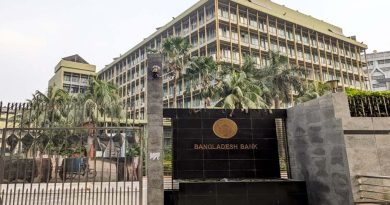The Bangladesh Bank has dissolved the board of directors of Premier Bank and reconstituted it with new members, citing severe lapses in corporate governance, weak loan discipline, and mismanagement.
The central bank invoked its authority under the Bank Company Act, 1991, which allows it to dissolve or reconstitute a bank’s board if its actions are deemed harmful to depositors, the institution, or the wider public interest. Officials said the move aims to restore transparency, accountability, and discipline within the bank’s operations.
Mohammad Shahriar Siddiqui, acting spokesperson of the central bank, confirmed the decision late Tuesday.
New board members
In the reconstituted board, Dr. Arifur Rahman has been appointed as a director representing the sponsor shareholders. The independent directors include:
- Md. Forkan Hossain, former executive director of Bangladesh Bank
- Syed Faridul Islam, former additional managing director of United Commercial Bank
- Md. Sazzad Hossain, former deputy managing director of Bank Asia
- Sheikh Morshed Jahan, professor at Dhaka University’s Institute of Business Administration (IBA)
- M. Nurul Alam, Chartered Secretary
The previous board was chaired by Mohammad Imran Iqbal, with Jamal G. Ahmed as vice-chairman. Other members included Abdus Salam Murshedy, Shafiqur Rahman, Shaila Shelley Khan, Yeh Cheng Min, and Mohammed Ahmed Ali.
Wider crackdown
The reshuffle at Premier Bank is part of a broader crackdown by Bangladesh Bank on poorly governed lenders. Since August 15, 2024, the regulator has reconstituted the boards of 15 banks, including Islami Bank, Social Islami Bank, IFIC Bank, United Commercial Bank, Exim Bank, First Security Islami Bank, Al-Arafah Islami Bank, Global Islami Bank, Union Bank, National Bank, NRB Bank, NRBC Bank, Meghna Bank, and Bangladesh Commerce Bank (BCBL).
Analysts note that repeated board interventions reflect mounting concern over governance failures in the banking sector, particularly in managing risky loans and ensuring accountability to depositors.
With the latest move, the central bank has signaled that it will continue to tighten oversight and restructure bank leadership where governance lapses are found, in a bid to strengthen confidence in the sector.






